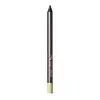Urban Decay 24/7 Glide-On Waterproof Eyeliner Pencil Versus Pixi Beauty Hello Kitty Endless Silky Eye Pen
What's inside
What's inside
 Key Ingredients
Key Ingredients

 Benefits
Benefits

No benefits
 Concerns
Concerns

 Ingredients Side-by-side
Ingredients Side-by-side

Isododecane
EmollientCyclopentasiloxane
EmollientPEG/PPG-19/19 Dimethicone
EmulsifyingSynthetic Wax
AbrasiveHydrogenated Polydicyclopentadiene
Calcium Sodium Borosilicate
Nylon-12
C20-40 Alcohols
EmulsifyingPerfluorononyl Dimethicone
Skin ConditioningSilica
AbrasiveSynthetic Fluorphlogopite
Calcium Aluminum Borosilicate
Polyglyceryl-4 Diisostearate/Polyhydroxystearate/Sebacate
EmulsifyingPolyethylene Terephthalate
Polyethylene
AbrasivePentaerythrityl Tetra-Di-T-Butyl Hydroxyhydrocinnamate
AntioxidantAcrylates Copolymer
Tin Oxide
AbrasiveTocopherol
AntioxidantPolyurethane-11
Mica
Cosmetic ColorantIron Oxides
CI 77891
Cosmetic ColorantCI 77007
Cosmetic ColorantCI 77510
Cosmetic ColorantCI 77400
Cosmetic ColorantCI 77000
Cosmetic ColorantCI 75470
Cosmetic ColorantIsododecane, Cyclopentasiloxane, PEG/PPG-19/19 Dimethicone, Synthetic Wax, Hydrogenated Polydicyclopentadiene, Calcium Sodium Borosilicate, Nylon-12, C20-40 Alcohols, Perfluorononyl Dimethicone, Silica, Synthetic Fluorphlogopite, Calcium Aluminum Borosilicate, Polyglyceryl-4 Diisostearate/Polyhydroxystearate/Sebacate, Polyethylene Terephthalate, Polyethylene, Pentaerythrityl Tetra-Di-T-Butyl Hydroxyhydrocinnamate, Acrylates Copolymer, Tin Oxide, Tocopherol, Polyurethane-11, Mica, Iron Oxides, CI 77891, CI 77007, CI 77510, CI 77400, CI 77000, CI 75470
Isododecane
EmollientSynthetic Wax
AbrasiveMica
Cosmetic ColorantCalcium Sodium Borosilicate
Hydrogenated Polydicyclopentadiene
PEG/PPG-18/18 Dimethicone
EmulsifyingPolybutene
Glyceryl Tribehenate/Isostearate/Eicosandioate
EmollientNylon-12
Polyethylene
AbrasivePerfluorononyl Dimethicone
Skin ConditioningPolyglyceryl-4 Diisostearate/Polyhydroxystearate/Sebacate
EmulsifyingSynthetic Beeswax
Emulsion StabilisingSilica
AbrasivePentaerythrityl Tetra-Di-T-Butyl Hydroxyhydrocinnamate
AntioxidantCopernicia Cerifera Cera
EmollientTin Oxide
AbrasiveCI 77891
Cosmetic ColorantCI 77499
Cosmetic ColorantIsododecane, Synthetic Wax, Mica, Calcium Sodium Borosilicate, Hydrogenated Polydicyclopentadiene, PEG/PPG-18/18 Dimethicone, Polybutene, Glyceryl Tribehenate/Isostearate/Eicosandioate, Nylon-12, Polyethylene, Perfluorononyl Dimethicone, Polyglyceryl-4 Diisostearate/Polyhydroxystearate/Sebacate, Synthetic Beeswax, Silica, Pentaerythrityl Tetra-Di-T-Butyl Hydroxyhydrocinnamate, Copernicia Cerifera Cera, Tin Oxide, CI 77891, CI 77499
 Reviews
Reviews

Ingredients Explained
These ingredients are found in both products.
Ingredients higher up in an ingredient list are typically present in a larger amount.
Calcium Sodium Borosilicate is a bulking agent. It is considered a borosilicate glass; it is composed of powder or flakes of calcium and sodium borosilicates.
This ingredient is used to add volume, shine, and color to products. You'll most likely find this ingredient in makeup products.
According to in-vivo and ex-vivo studies done by a manufacturer, this ingredient works well with UV filters:
Learn more about Calcium Sodium BorosilicateCi 77891 is a white pigment from Titanium dioxide. It is naturally found in minerals such as rutile and ilmenite.
It's main function is to add a white color to cosmetics. It can also be mixed with other colors to create different shades.
Ci 77891 is commonly found in sunscreens due to its ability to block UV rays.
Learn more about CI 77891We don't have a description for Hydrogenated Polydicyclopentadiene yet.
Isododecane is a fragrance, emollient, and solvent.
As an emollient, it helps your skin stay soft and hydrated. Emollients help trap moisture into your skin.
Isododecane's role as a solvent makes it a great texture enhancer. It spreads smoothly on skin and does not leave a sticky feeling behind. Isododecane also helps prevent color transfer in makeup products.
Isododecane is not absorbed into skin.
Learn more about IsododecaneMica is a naturally occurring mineral used to add shimmer and color in cosmetics. It can also help improve the texture of a product or give it an opaque, white/silver color.
Serecite is the name for very fine but ragged grains of mica.
This ingredient is often coated with metal oxides like titanium dioxide. Trace amounts of heavy metals may be found in mica, but these metals are not harmful in our personal products.
Mica has been used since prehistoric times throughout the world. Ancient Egyptian, Indian, Greek, Roman, Aztec, and Chinese civilizations have used mica.
Learn more about MicaNylon-12 is a polymer. It is derived from 12-aminododecanoic acid, an omega-amino fatty acid
According to a manufacturer, it is a talc substitute. Like talc, nylon-12 gives products a satin feel. The manufacturer also claims this ingredients does not block pores and has moderate oil absorption.
This ingredient may not be reef-safe.
Learn more about Nylon-12Pentaerythrityl Tetra-Di-T-Butyl Hydroxyhydrocinnamate (long name, huh?) is a synthetic antioxidant.
It is used to help stabilize other antioxidants or prevent the color from changing in a product.
As an antioxidant, it helps fight free-radical molecules. Free-radical molecules are capable of damaging our cells and other genetic material. Thus, antioxidants may reduce the signs of aging.
This ingredient is oil-soluble.
Learn more about Pentaerythrityl Tetra-Di-T-Butyl HydroxyhydrocinnamatePerfluorononyl Dimethicone is a type of silicone.
Polyethylene is a synthetic ingredient that helps the skin retain moisture. It is a polymer.
It is also typically used within product formulations to help bind solid ingredients together and thicken oil-based ingredients. When added to balms and emulsions, it helps increase the melting point temperature.
Polyglyceryl-4 Diisostearate/Polyhydroxystearate/Sebacate isn't fungal acne safe.
Silica, also known as silicon dioxide, is a naturally occurring mineral. It is used as a fine, spherical, and porous powder in cosmetics.
Though it has exfoliant properties, the function of silica varies depending on the product.
The unique structure of silica enhances the spreadability and adds smoothness, making it a great texture enhancer.
It is also used as an active carrier, emulsifier, and mattifier due to its ability to absorb excess oil.
In some products, tiny microneedles called spicules are made from silica or hydrolyzed sponge. When you rub them in, they lightly polish away dead skin layers and enhance the penetration of active ingredients.
Learn more about SilicaSynthetic Wax is created from fossil fuels such as natural gas. It is used to enhance texture, adjust pH, and as an occlusive.
It may also be used as an abrasive ingredient to exfoliate the skin.
Synthetic Wax may not be fungal acne safe.
Learn more about Synthetic WaxTin Oxide is an inorganic oxide used to add opacity and volume to a product. In nature, it is already found in mineral form. The main ore of tin is an opaque and shiny mineral called casseterite.
Tin Oxide helps remove translucency in a product, or make it more opaque. Besides adding opacity, tin oxide is used for bulking to add volume.